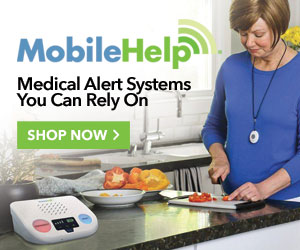Are you worried about your aging parents who live far away? You’re not alone. Millions of adult children are stepping into the role of long-distance caregivers, facing the challenge of ensuring their loved ones’ well-being from afar.
The good news is, distance doesn’t have to mean limited care. With the right planning, preparation, and a little help, you can provide excellent long-distance care for your parents and keep them safe and comfortable in their own home. This guide explores six practical tips designed for long-distance caregivers.
1. Build Your Care Village: Sharing the Responsibility
Think of your support system as a village. By delegating tasks based on everyone’s skills and availability, you can create a network that safeguards your parents’ well-being.
- Tap into your network: Don’t be shy about asking siblings, friends, or even neighbors for help. A neighbor might check in regularly, while an aunt who loves shopping can handle groceries.
- Delegate tasks: Family members who can’t offer hands-on care can still be invaluable. Perhaps a relative or trusted friend might handle errands and transportation, or a neighbor can assist with handyman odd jobs, while another close friend or relative offers occasional respite care.
- Don’t underestimate the power of legal and financial support: Having a trusted family member or professional manage bills and accounts remotely can be a huge weight off your shoulders.
Building a strong care village allows everyone to contribute their unique skills and resources, creating a supportive environment for your parents and reducing your stress as a long-distance caregiver.
2. Bridge the Distance: Providing Virtual Support
Many seniors feel isolated and lonely and even avoid hospital visits due to mobility issues, fear, financial concerns, or simply apprehension. The good news is, as a long-distance caregiver, you can still be a tremendous support using the power of technology. You can be a Virtual Assistant by utilizing:
- Regular video calls: Schedule video calls to connect with your parents and at the same time, assess their well-being. If your parent is unable to operate a video device, enlist the help of a neighbor or family member. Video calls will not only lift their spirits, they also provide an opportunity to look for any signs that might indicate health concerns or a need for additional support.
- Remote healthcare management: Leverage the available online tools. You can help them schedule doctor appointments, order groceries for delivery, or even book transportation to ensure they get to appointments safely.
- Digital resources: The internet streamlines healthcare access. Help them find specialists online and attend virtual telehealth appointments whenever you can. You can also take care of bill payments, download test reports – all remotely.
- Memory support: Age-related memory decline can make it difficult for parents to remember appointments. Set up online reminders for follow-up appointments, medication refills, and even routine activities. Gentle reminders via calls can also help them stay on track.
By utilizing technology, you can bridge the physical distance and provide essential support for your parents’ health and well-being.
The easiest way to track medication is a pill organizer. You might also ask a relative nearby to assist with the pill organizer and medication management, or find a trained professional who can administer medication. It is crucial that you maintain a list of all medications in the event of an emergency or to help with refills. Additionally:
- Check in often: Ask your parents during your regular call about how their medication management is going.
- Set reminders: Utilize technology to assist with reminders. Smartphone apps, Amazon Alexa, and Google Home all offer voice reminders that can be set up remotely.
Medication management and regular monitoring of health symptoms is critical to their well being and success in living independently.
4. Prepare for Emergencies: Planning for the Unexpected
While hoping for the best, it’s crucial to plan for the unexpected. There are steps you can take to ensure there’s a safety net in place that will give you peace of mind, even when miles apart.
- Build a Trusted Network: Maintain good relationships with neighbors who can check in on your parents regularly. This can provide early intervention and a friendly face in times of need.
- Create an emergency contact list: Include contact details for doctors, family, friends, neighbors, local services, and yourself. Keep a copy readily available for your parents and caregivers.
- Invest in a medical alert system: Consider a medical alert system with features like fall detection and emergency buttons. This can provide critical support and potentially save lives in emergencies.
5. Hire Professional Help: Building a team of local professionals
Many long-distance caregivers find relief by building a team of local professionals to assist their parents. There are volunteer based organizations and professional service providers that offer the following:
- In-Home Caregivers: Consider hiring a qualified caregiver to provide companionship, assistance with daily tasks, and emotional support for your parents.
- Handyman Services: A reliable handyman can address minor repairs, safety hazards, and general upkeep around the house, giving you peace of mind and preventing potential accidents.
- Senior Home Safety Services: look for companies that specialize in senior home modifications, like installing grab bars or ramps.
- Professional Senior Care Organizations: Can assist with non-medical in-home care offering companionship, light housekeeping, transportation, and medication reminders.
- Geriatric Care Services: Consider hiring a geriatric care manager to conduct assessments, create care plans, and coordinate services for your parents.
When hiring help, it’s important that you:
- Interview Carefully: Take your time to find caregivers with the right experience, qualifications, and personality to fit your parents’ needs. Check references and meet them in person or over video call.
- Build Rapport: Even though you’re long-distance, it’s important to establish a relationship with a caregiver, handyman, or service provider. Schedule an initial meeting (virtually if needed) to discuss your parents’ needs and preferences.
By delegating tasks and building a team of trusted professionals, you can ensure your parents receive the care they need while minimizing your stress as a long-distance caregiver.
6. Secure Access and Peace of Mind: Smart Solutions for Long-Distance Caregiving
As you build your care team, you’ll likely need to grant access to your parents’ home for caregivers, handymen, or even yourself in an emergency. Here’s how to ensure security and peace of mind:
- Limited Key Distribution: While trusted neighbors or family members having a spare key can be convenient, consider alternatives for broader access.
- Keyless Entry Systems: Invest in a secure keyless entry system with a code. This allows authorized individuals to enter the home easily, eliminates the risk of lost keys, and provides an audit trail of access.
- Remote Access for Added Control: Explore smart lock options that integrate with your smartphone. This allows you to grant or revoke access remotely, giving you peace of mind and increased control over your parents’ home security.
Medical Alert Systems are a safety net for emergencies. Alert systems provide invaluable protection, especially for long-distance caregivers. Here’s what to consider:
- Features Tailored to Needs: Choose a system with features that match your parents’ needs and budget. Options range from basic emergency buttons to fall detection and real-time monitoring.
- Added Security with GPS Tracking: Some systems offer GPS tracking, allowing you to locate your parents in case of emergencies.
- Do Your Research: Explore reputable medical alert system providers and compare features, pricing, and customer reviews to find the best fit.
By implementing secure access solutions and a medical alert system, you can ensure a safe and supportive environment for your parents, even when miles apart. This gives you peace of mind and allows you to focus on quality time during your visits.





